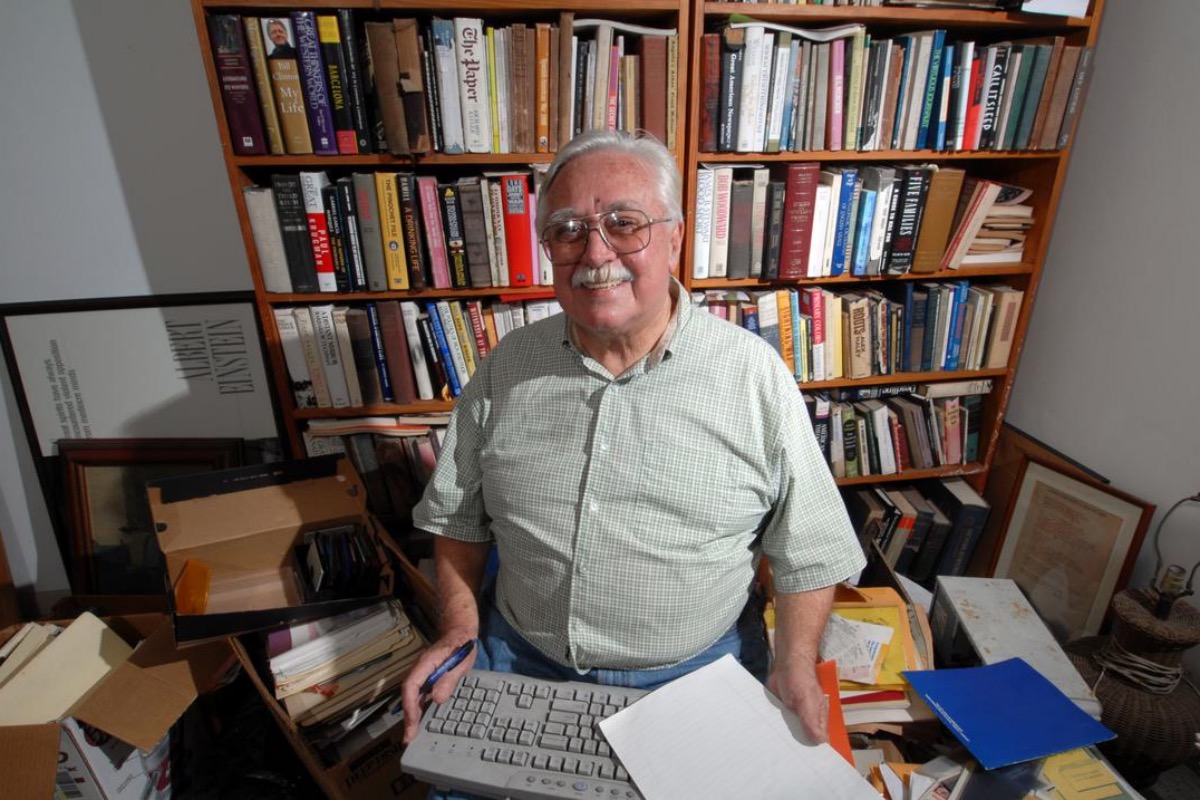Manuel “Manny” Suárez del Rio was one of those rare journalists who never let the bastards get away with it. He hounded stories until he broke them wide open, as with the Cerro Maravilla murders in 1978 —the Boricua Watergate— using the weight of investigative journalism to tell truth to power.
Suárez, a professor of journalism at the University of Puerto Rico, Río Piedras Campus, died recently after a long battle with Alzheimer’s disease at the age of 92. With his passing, Puerto Rican journalism lost one of its much-need rock stars.
“He was an extraordinary human being who taught us to be empathic, generous and compassionate toward others,” Juan Esteban Suárez, Manny’s son, wrote in his father’s eulogy. “He guided us not to do to others what you would not want them to do to you. In addition, he stressed the importance of dialogue, one that must be carried out with respect and tolerance.”
Suárez was born in New York to Spanish and Mexican parents. He spent a few years in Spain and, after his mother died, went back to New York to start public school. He served a two-year stint in the Army during the Korean War, mainly in Germany.
Back in Manhattan, he attended Long Island University. He was working at the New York Post —home of the “princes of print,” Jimmy Breslin and Pete Hamill— when he met and married Puerto Rican María Teresa Jiménez.
After the wedding, he visited Puerto Rico and fell in love with the island and its people. In 1960, he found a job in San Juan with the newspaper El Mundo. Soon after, The San Juan Star, the island’s English-language newspaper, came calling.
Suárez was hired by Star managing editor William Kennedy —who would go on to win a Pulitzer Prize for the novel Ironweed— and worked at the paper for over 30 years until it folded in 2008. There he broke the biggest story of his life, the case of the killings at Cerro Maravilla.
On July 25, 1978, Puerto Rican police officers shot and killed two young supporters of Puerto Rican independence who allegedly planned to sabotage communication towers on the mountaintop.
The police officers claimed that Carlos Soto Arrivi, 18, and Arnaldo Dario Rosado, 24, opened fire on the cops first. However, one impartial witness, the terrified taxi cab driver, said the two men were killed in cold blood after surrendering to police.
The two youths had been lured to the mountain by an undercover agent who had infiltrated their group. They killed by other police officers waiting for them at the top.
Suárez and Stella were instrumental in uncovering the cold-blooded execution and the high-level effort to cover up the incident, orchestrated by pro-statehood Gov. Carlos Romero Barceló and federal authorities.
Suárez later wrote the book Two Lynchings on Cerro Maravilla.
“Manny was a great, gifted journalist who would dig up what was going on,” said Selwyn Raab, 88, a journalist, author, and former investigative reporter for the New York Times, when I talked to him about Suárez.
Raab met Manny when he covered a crime spree on the island—it was his beat. Raab reported on the American Mafia and wrote Five Families and Justice in the Back Room, becoming the inspiration for the character of detective Theo Kojak.
He and Manny, a Times stringer, soon discovered that both had grown up in the same neighborhood on the Lower East Side of Manhattan and became friends.
“What a gift he was to his adopted country,” Raab said. “He’s a legend. He’s a gift to journalism. It’s a testament to how great he was.”
Today, journalism in Puerto Rico is struggling. It is, for the most part, a colonial press and politically bought. The government and the dominant parties —the pro-statehood Partido Nuevo Progresista (PNP) and the Partido Popular Democratico (PPD)— carry big financial sticks and control the message.
It’s a strategy to Frankenstein the truth to fit the agenda of whatever political party pays the bills, and the journalist that doesn’t play the game is attacked publicly and personally, as with the recent case of the Boricua journalist Sandra Rodríguez Cotto.
La Comay is a popular local show featuring a puppet dressed like a crone and voiced by Kobo Santarrosa. Unfortunately, the puppet and Santarrosa are one and the same, with a long history of racist, misogynistic, homophobic, and transphobic rhetoric.
Santarrosa has launched the ugliest personal attacks against Rodríguez Cotto —attacks about her gender, race, and body— and egged on viewers to call her “charlatana” and “hipócrita.”
Journalists on the island are considered public figures, but this shouldn’t open them to being attacked. Instead, we need to protect the journalists that get into good trouble: those at Bonita Radio, En Blanco y Negro, Ey Boricua, Centro de Periodismo Investigativo, and Fuera de La Caja con Carlos Webber, among others.
Manuel “Manny” Suárez would not have stood for any of this—and would have had La Comay for lunch, I bet.
During our conversation, Raab referred to the motto he and Manny used to live by: “You should afflict the comfortable, as you comfort the affected.”
Gracias, Manny. We promise never to let the bastards get away with it, whoever the bastards may be.
***
 Susanne Ramirez de Arellano is the former News Director for Univision Puerto Rico and a writer and journalist living in New York City. Comments can be sent to her email. Twitter: @DurgaOne
Susanne Ramirez de Arellano is the former News Director for Univision Puerto Rico and a writer and journalist living in New York City. Comments can be sent to her email. Twitter: @DurgaOne



